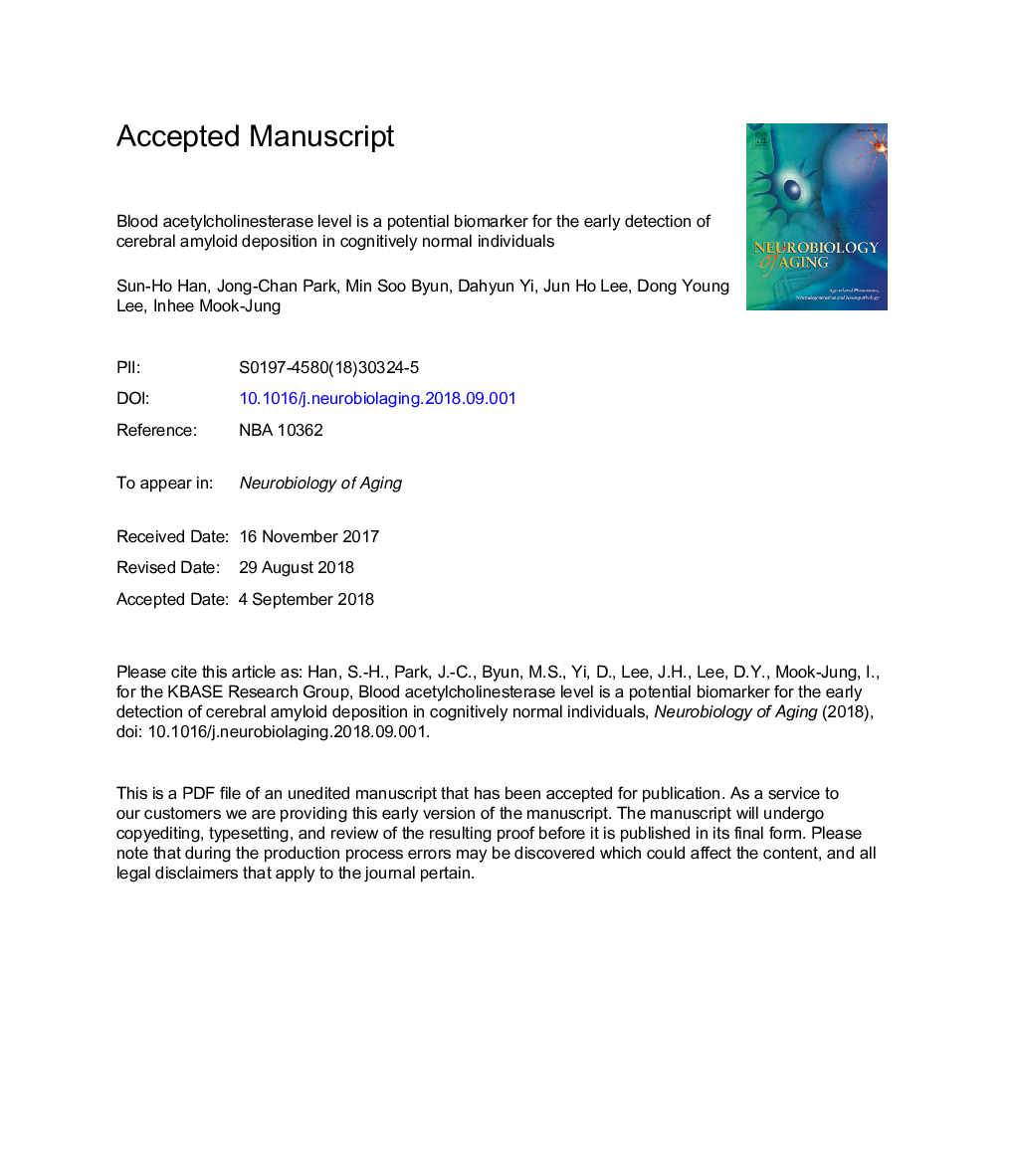| Article ID | Journal | Published Year | Pages | File Type |
|---|---|---|---|---|
| 11009928 | Neurobiology of Aging | 2019 | 41 Pages |
Abstract
Cerebral β-amyloid (cAβ) deposition and cholinergic dysfunction have been considered as major pathological and functional hallmarks of Alzheimer's disease (AD). Acetylcholinesterase (AChE) is one of the major cholinergic enzymes, and there is no report to show the relationship between cAβ accumulation and peripheral AChE alteration in early stage of AD pathogenesis. Recent studies demonstrate that cAβ starts to deposit 15-20 years ahead of symptomatic appearance and this preclinical AD is important for early diagnosis of disease. In this study, we investigated the link between cAβ deposition and the peripheral AChE in cognitively normal (CN) individuals. A total of 407 individuals who underwent Pittsburgh compound B (PiB)-positron emission tomography participated in our study. Lower levels of plasma AChE and its enzymatic activity were detected in CN individuals with cAβ deposition than in those without cAβ. Plasma AChE levels and enzymatic activity were negatively correlated with the degree of cAβ deposition. Our results suggest that blood AChE can be used as a potential blood biomarker for the prediction of cAβ deposition in CN individuals.
Related Topics
Life Sciences
Biochemistry, Genetics and Molecular Biology
Ageing
Authors
Sun-Ho Han, Jong-Chan Park, Min Soo Byun, Dahyun Yi, Jun Ho Lee, Dong Young Lee, Inhee Mook-Jung, KBASE Research Group KBASE Research Group,
